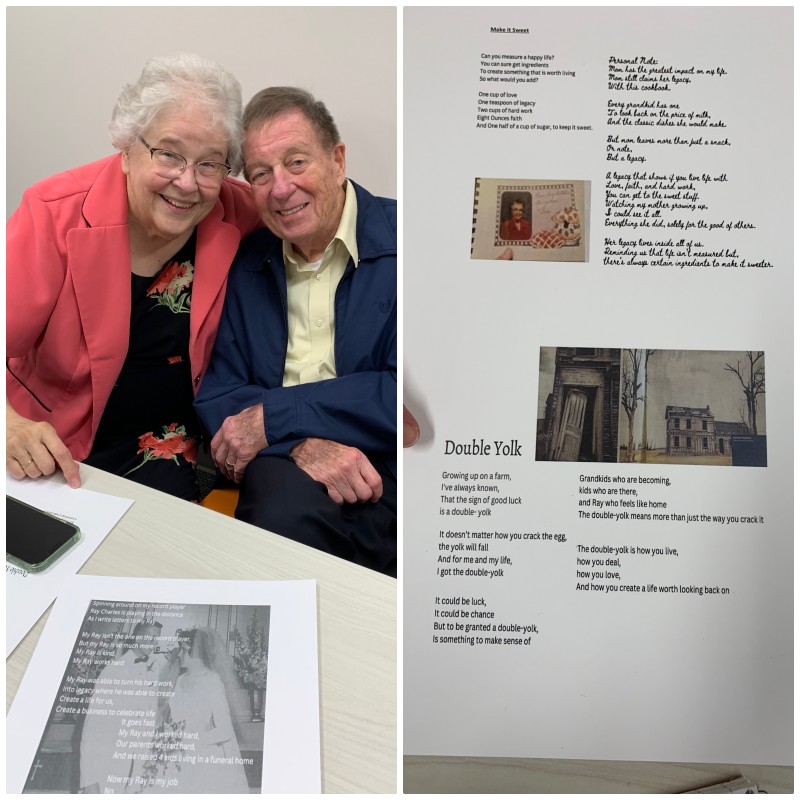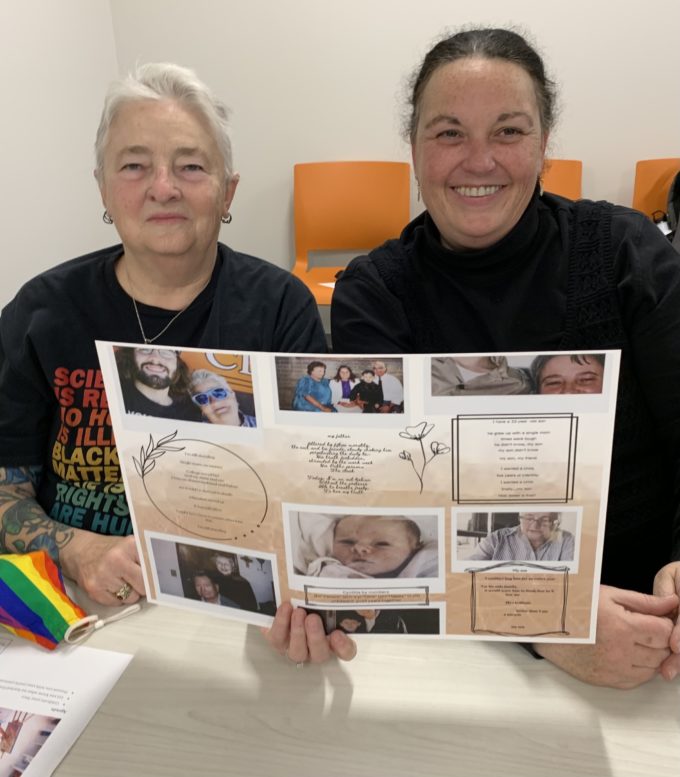By JULIE CARLE
BG Independent News
Nancy Wright grew up on a farm and learned that a double-yolk egg was a sign of good luck.
Reflecting on her life with her husband, Ray, four children and their families, she referenced the double-yolk life she has lived.
Bowling Green State University graduate student, Jillian Hallisey, who interviewed Wright for a university class assignment, captured the essence of Wright’s close relationships in a set of poetic portraits. Her experiences were portrayed in the poems “Double Yolk,” expressing how lucky she’s been in life; “Make It Sweet” and “Personal Note,” appreciating her mother’s sweet legacy; and “My Ray,” sharing her deep love for the man who has lost the details to Alzheimer’s but not the feelings of love that surround him daily.

Wright was one of 13 Bowling Green-area women over the age of 60 who shared their stories as part of the communications class assignment. Dr. Sandra Faulkner, professor of communication studies, and Dr. Wendy Watson, associate professor of gerontology, worked with the students and the women for the relational communications research. They employed the unique research method called poetic inquiry to better understand how women experience close relationships over a lifetime.
The local women shared their stories in an interview with Faulkner and a graduate student who crafted the poetry from a poetic transcript that was created from the traditional transcript. “The poetic portraits reflect the interview and participant in a way that cannot be captured by traditional research methods,” Faulkner said.
Genesis Jordan, a student in the media and communication master’s program, met with a woman in her early 80s who was born in Budapest, Hungary, came to New York for college and raised a family with three children. “The Journey of a Full Life” included the poems Jordan wrote to convey the woman’s perseverance.
“I never really knew research could be art-based,” she said of the poetic inquiry process. In the end, she realized that by writing the poems she was able to express the importance of relationships and how those relationships can change over time.
Graduate student Victoria Main connected with Dr. Cynthia Mahaffey, a retired teaching professor of English at BGSU, who decided to participate in the research project. “I was lucky to be paired with Victoria,” Mahaffey said.
Main admitted that she was a little apprehensive to be working with someone who had taught for 30 years and had “Dr.” in front of her name. “But I was right where I needed to be. She was so fun and easy to talk to, and she was so in touch with everything,” said Main, who is attending college at the same time as her two children.
Mahaffey’s story is told in photos and poems about a life of being late. “I got my master’s degree at 36. I had my son at 37, and I earned my Ph.D. at 51.”
She was late to the milestones because she was in a marriage defined by a controlling husband. She eventually had the courage to leave and forge her own path. “I’m Still Standing,” one of the poems Main wrote, explained how “education saved” Mahaffey, her mother, sister, and the son she wanted and had after years of infertility.
Faulkner was proud of the women who shared their stories and the students who were successful at utilizing poetic inquiry to tell the stories. “Poetry is able to get to more of the emotional feel. It reinforced the language of close relationships,” she said.
The process allowed an intergenerational connection that surprised both the women and the students. Poetry, “the language of emotion,” provided a tool that prose can’t, Faulkner explained.
“It’s important that women are supported across their lifespans. They benefited from having someone listen to and share their stories.”

